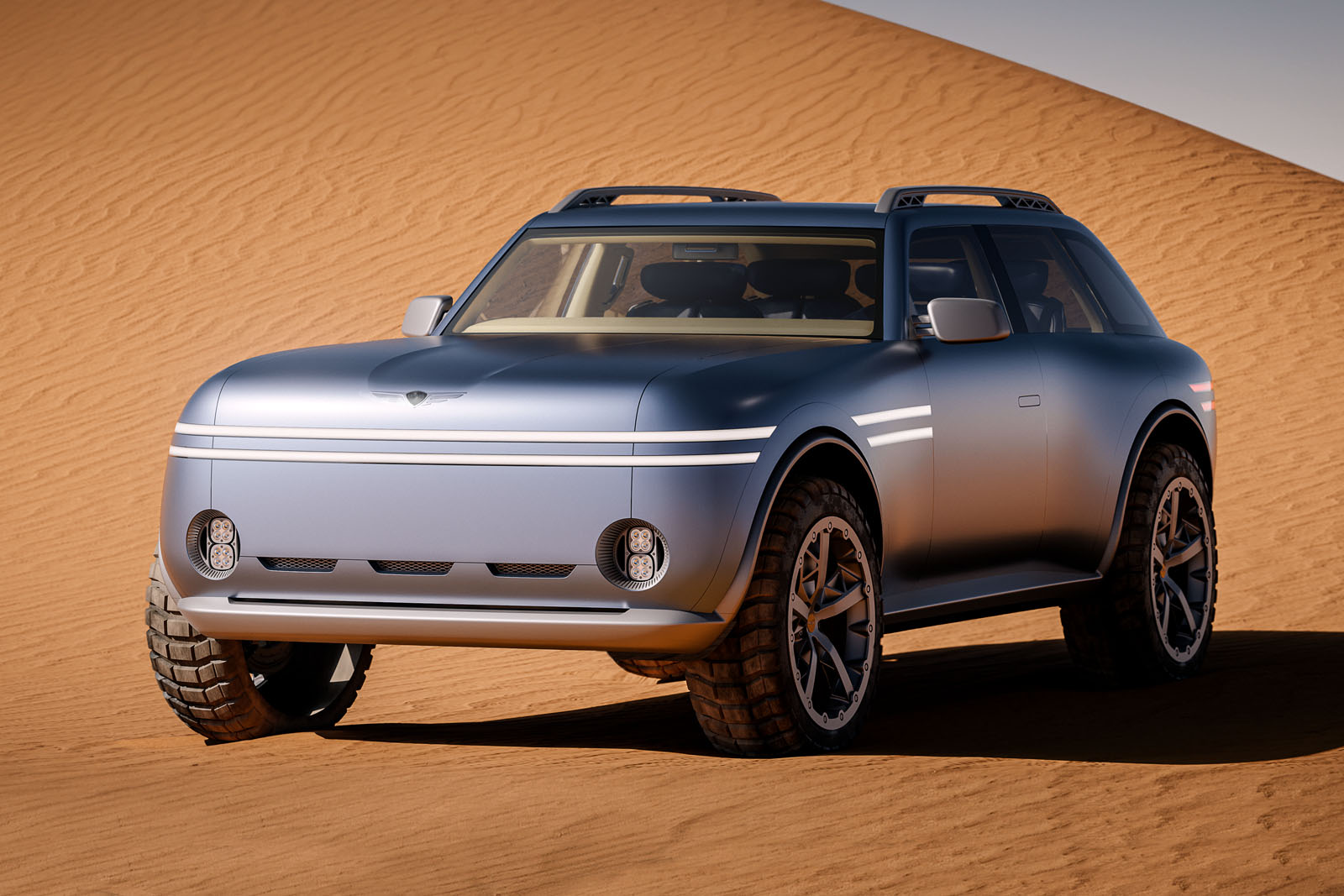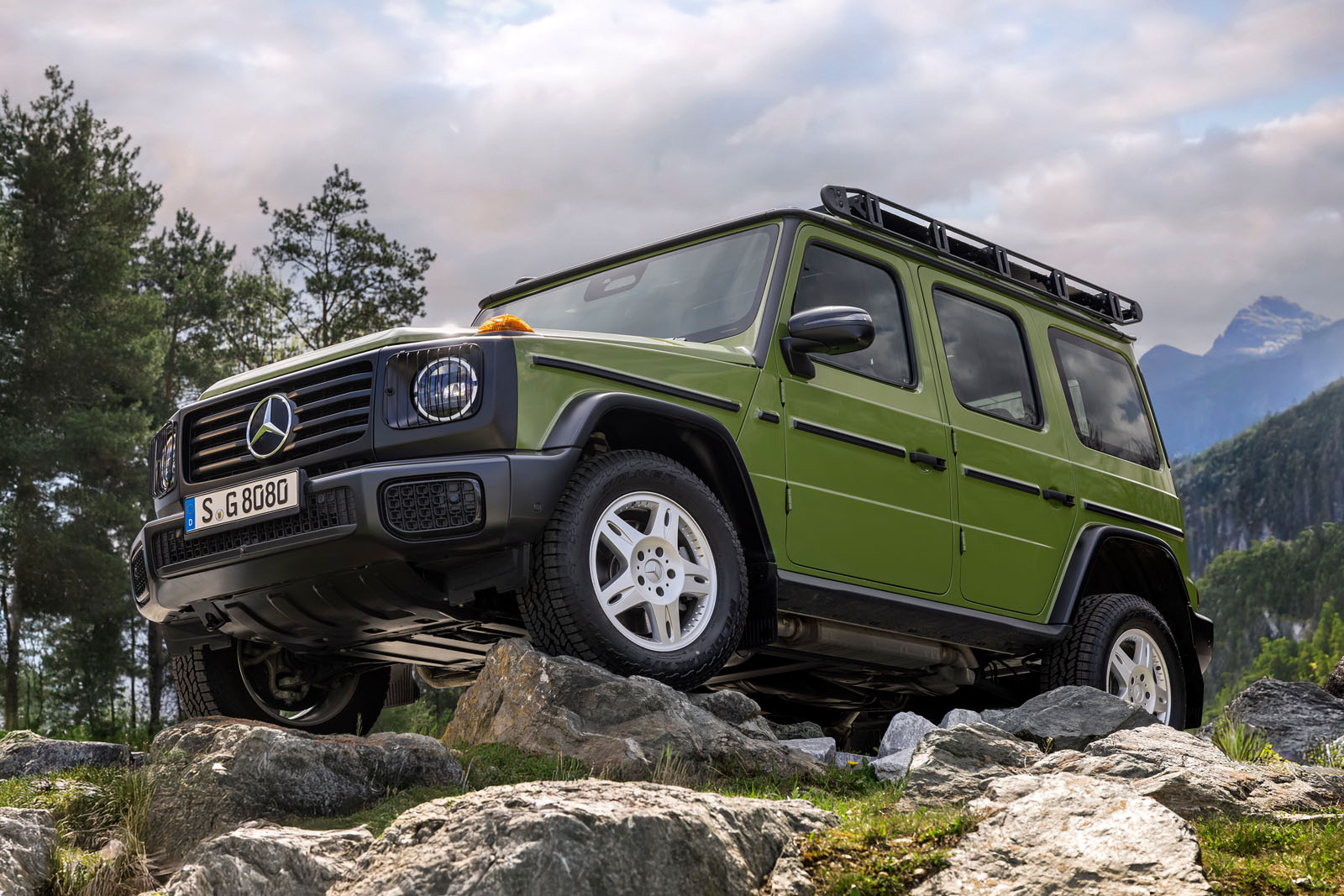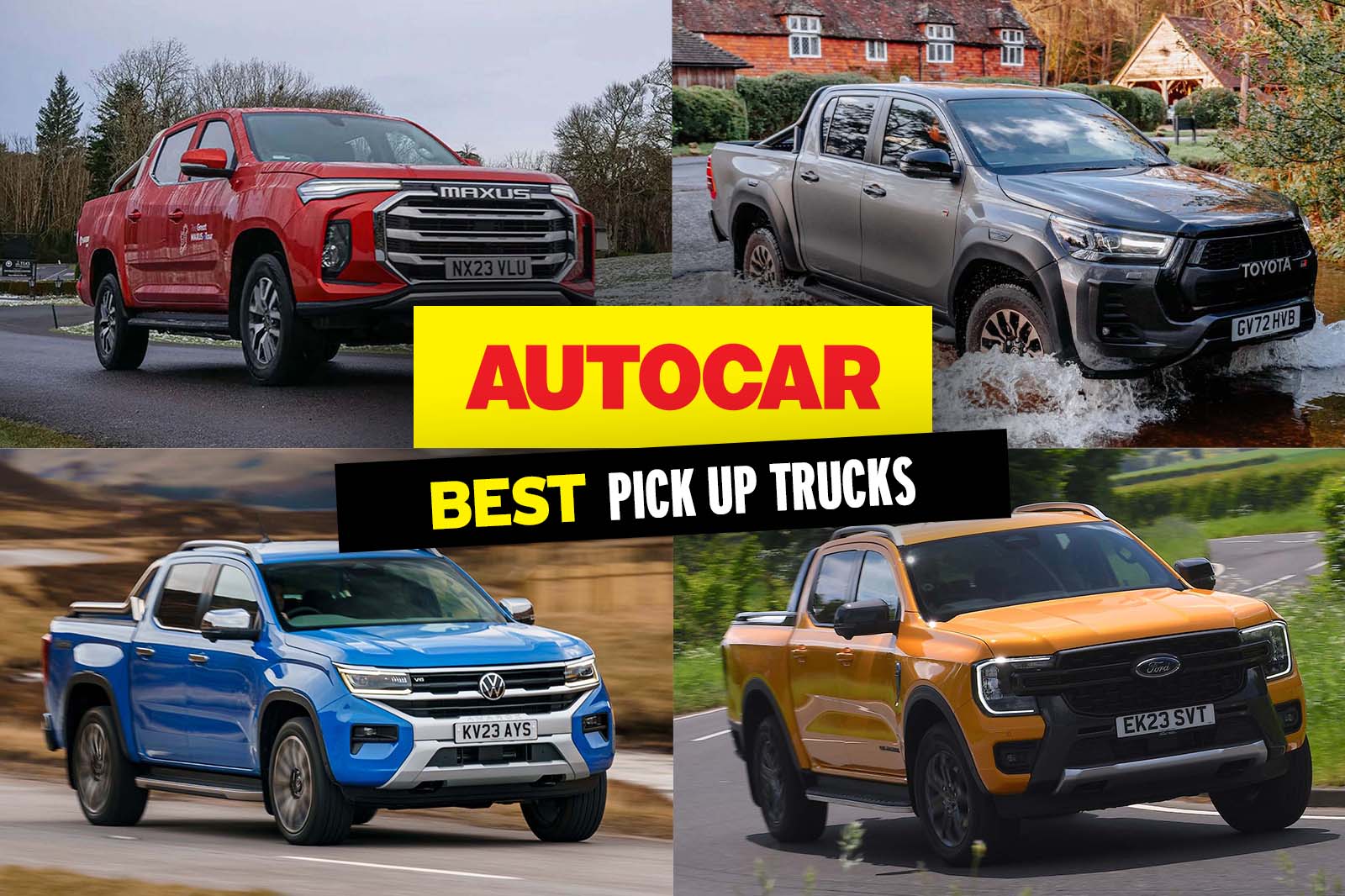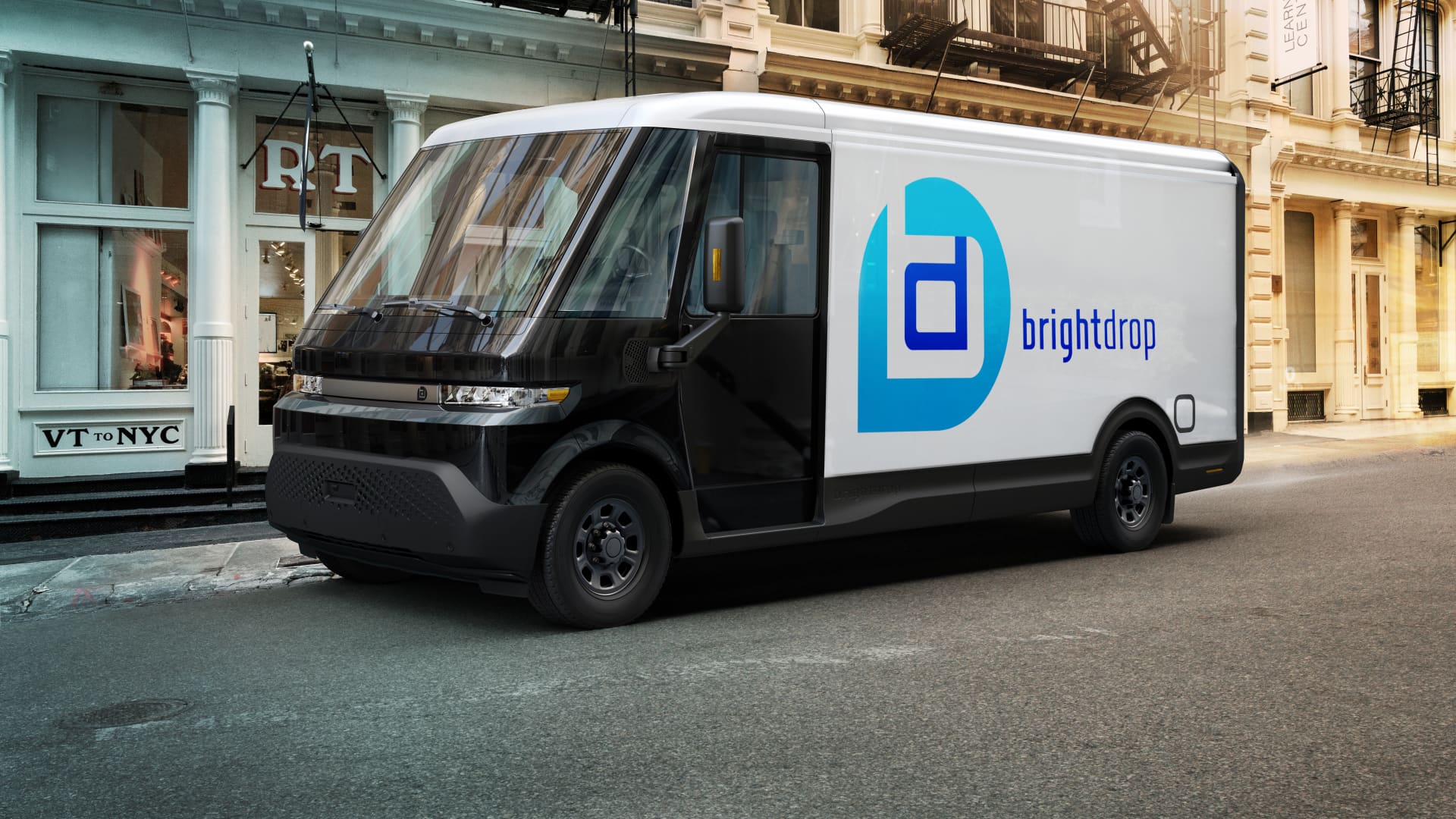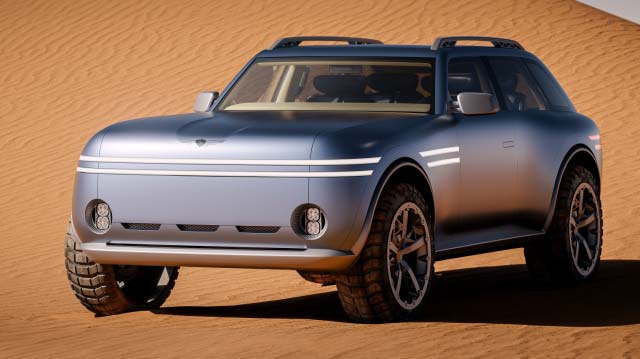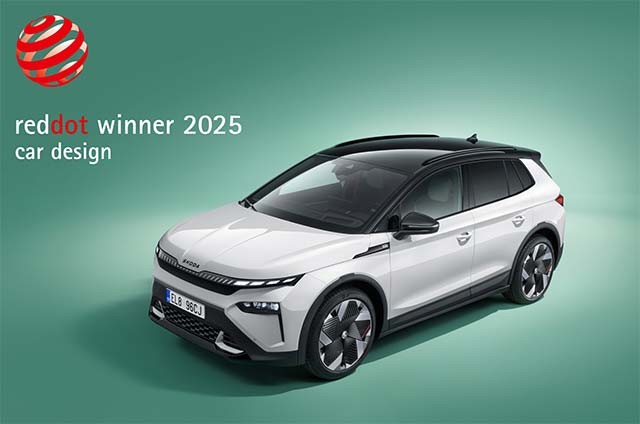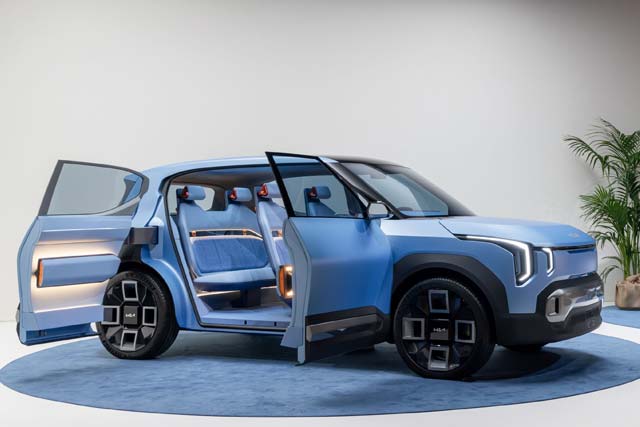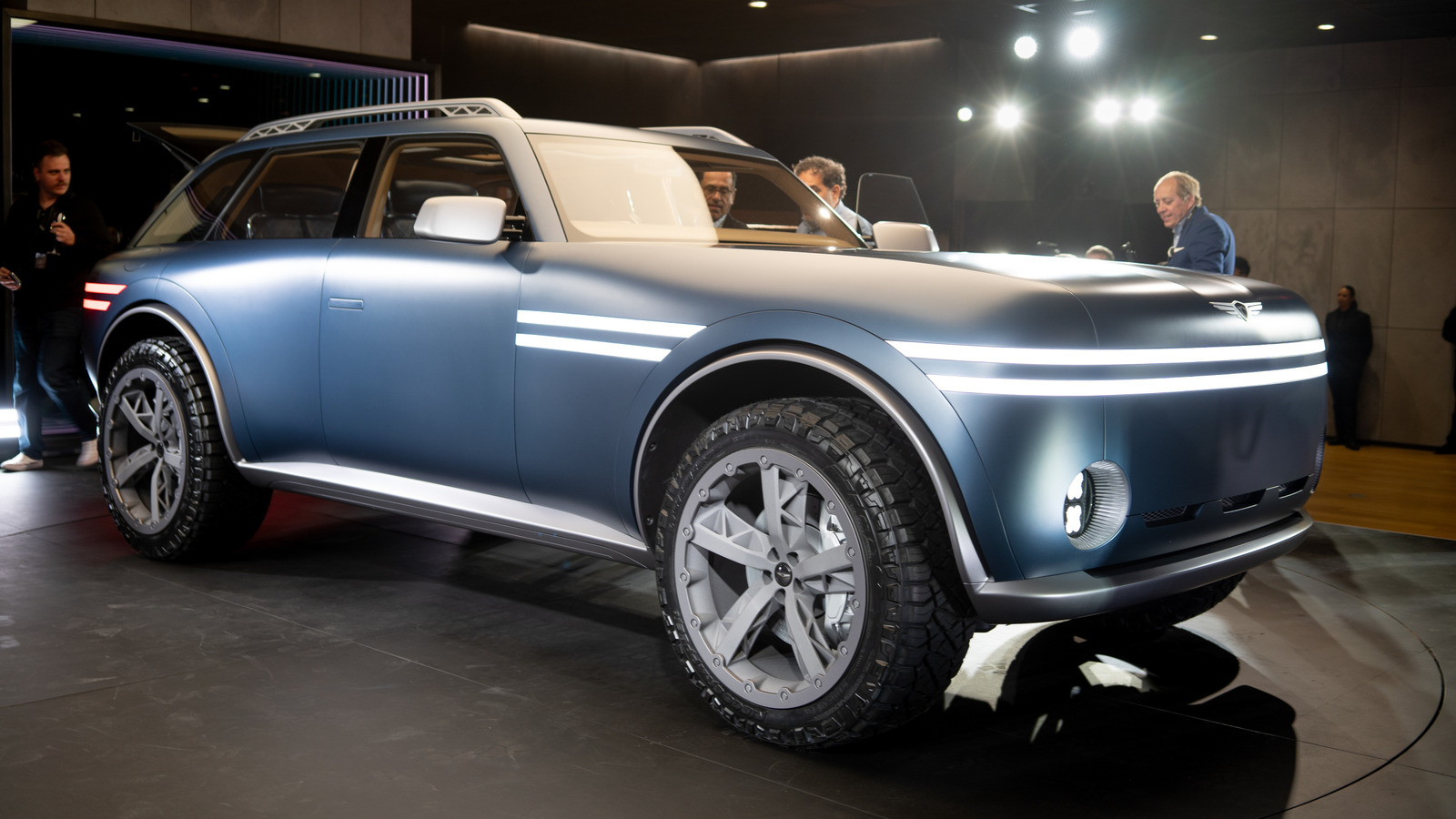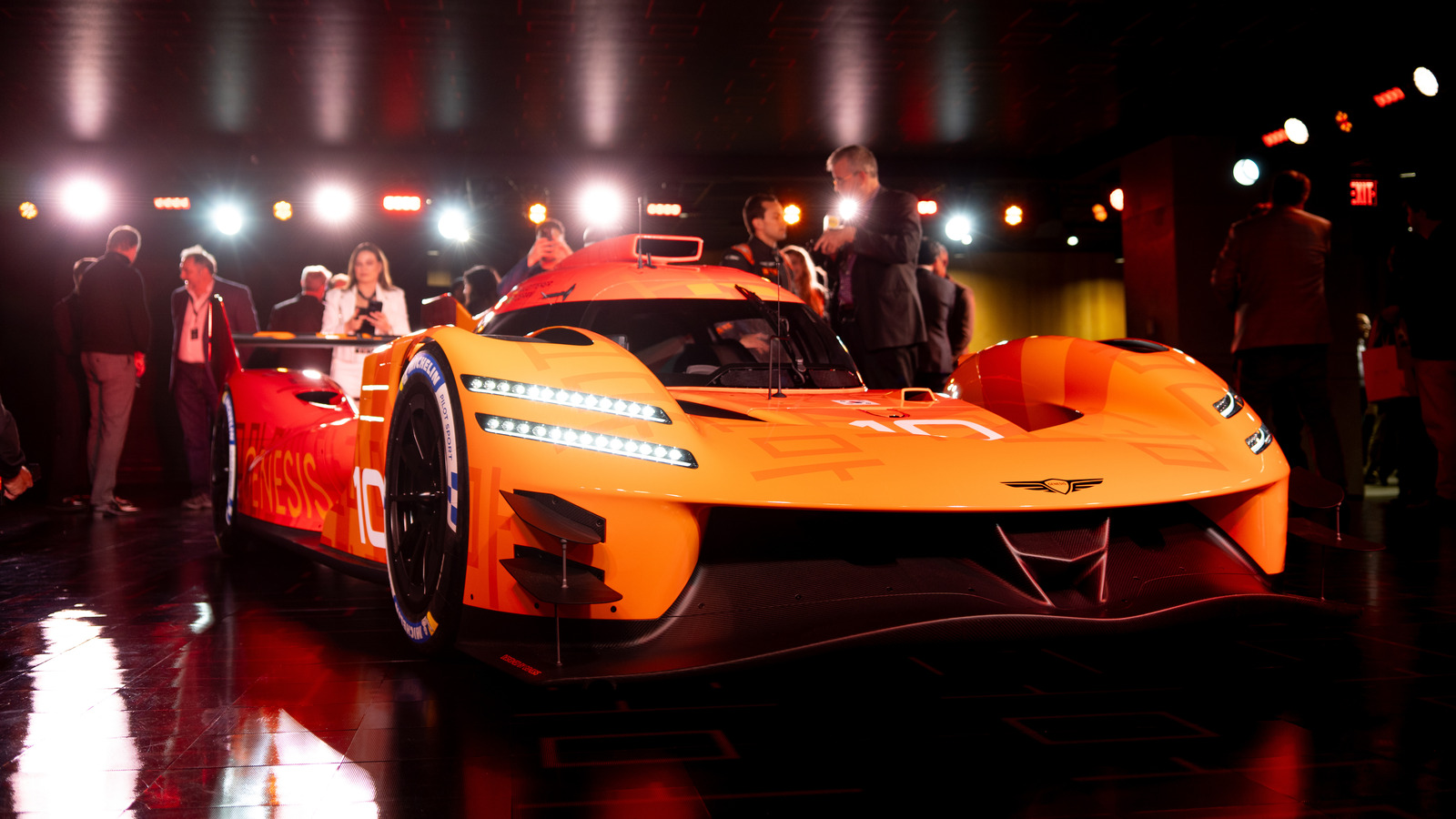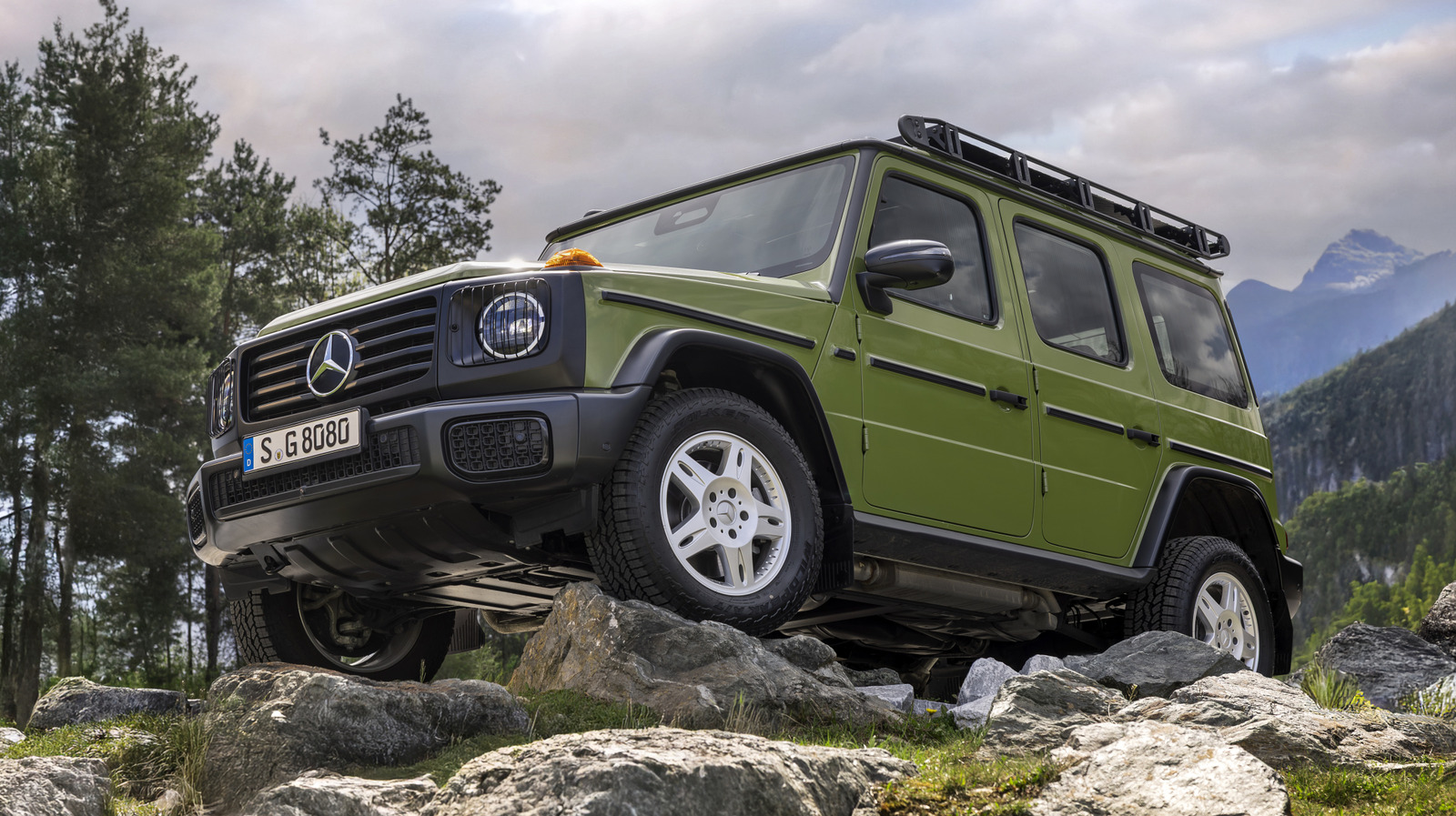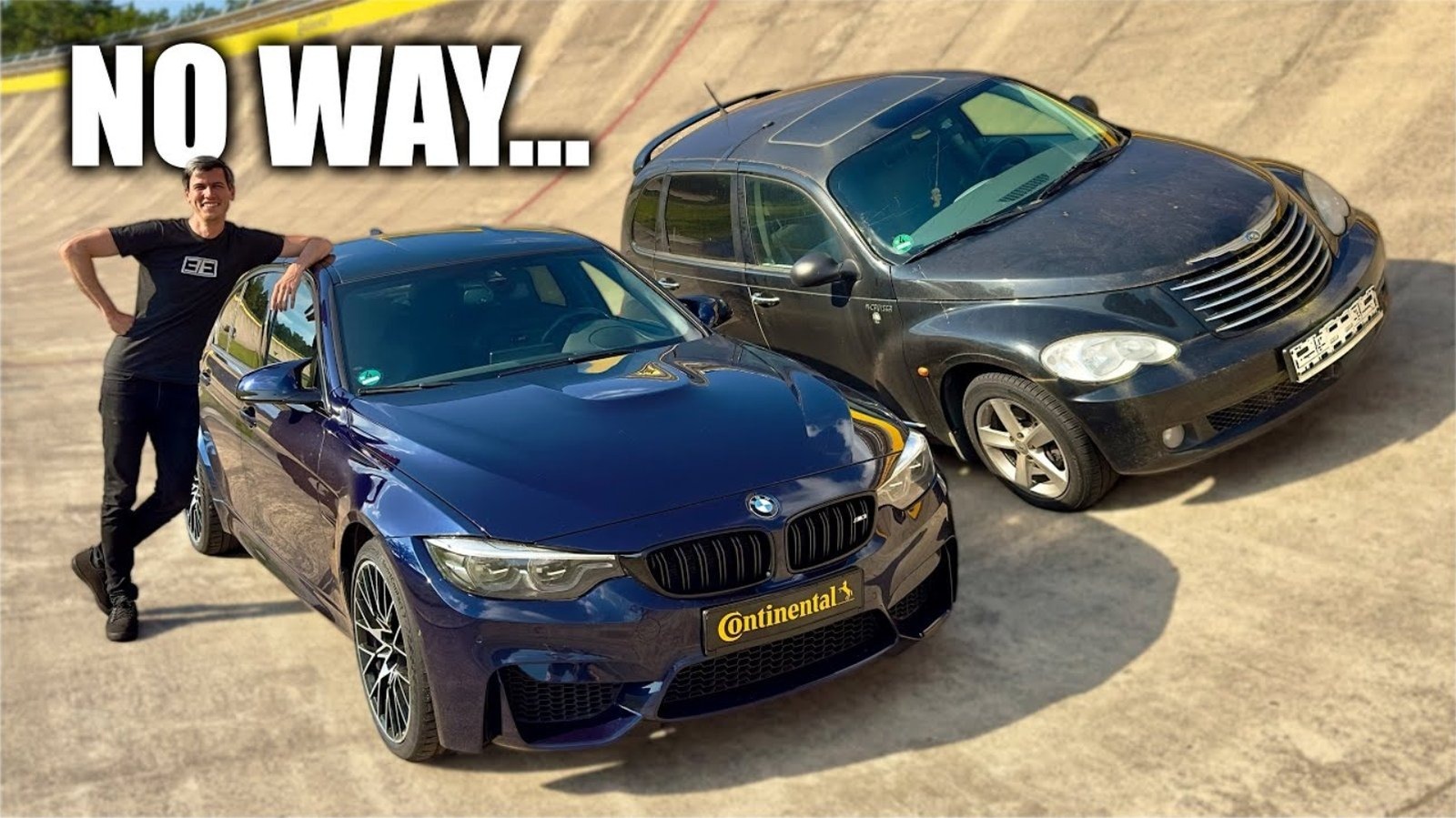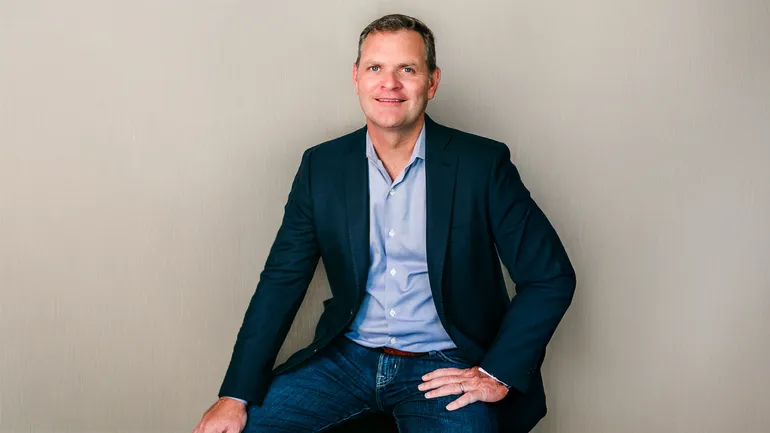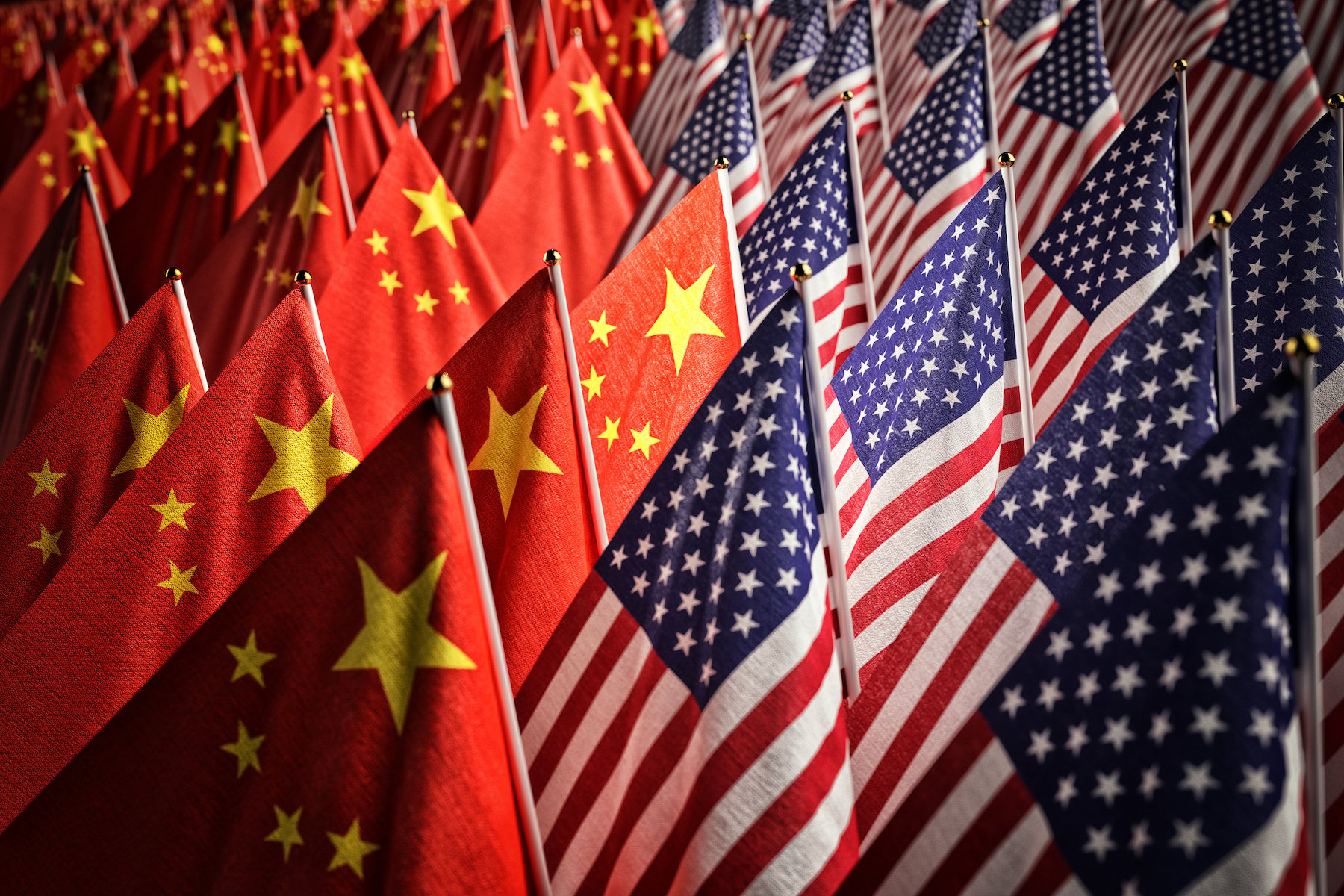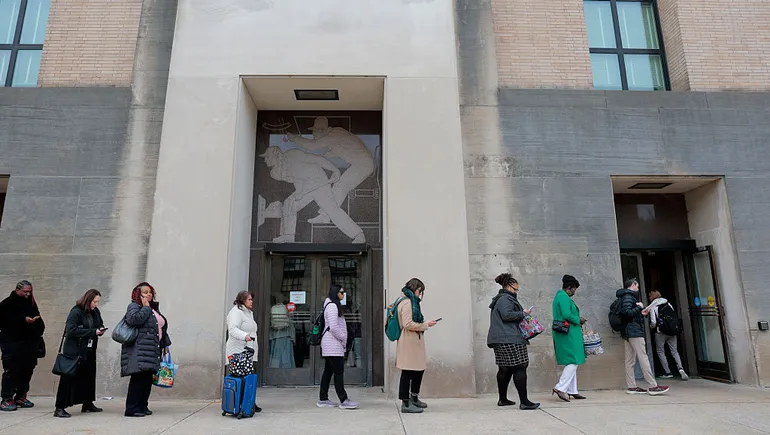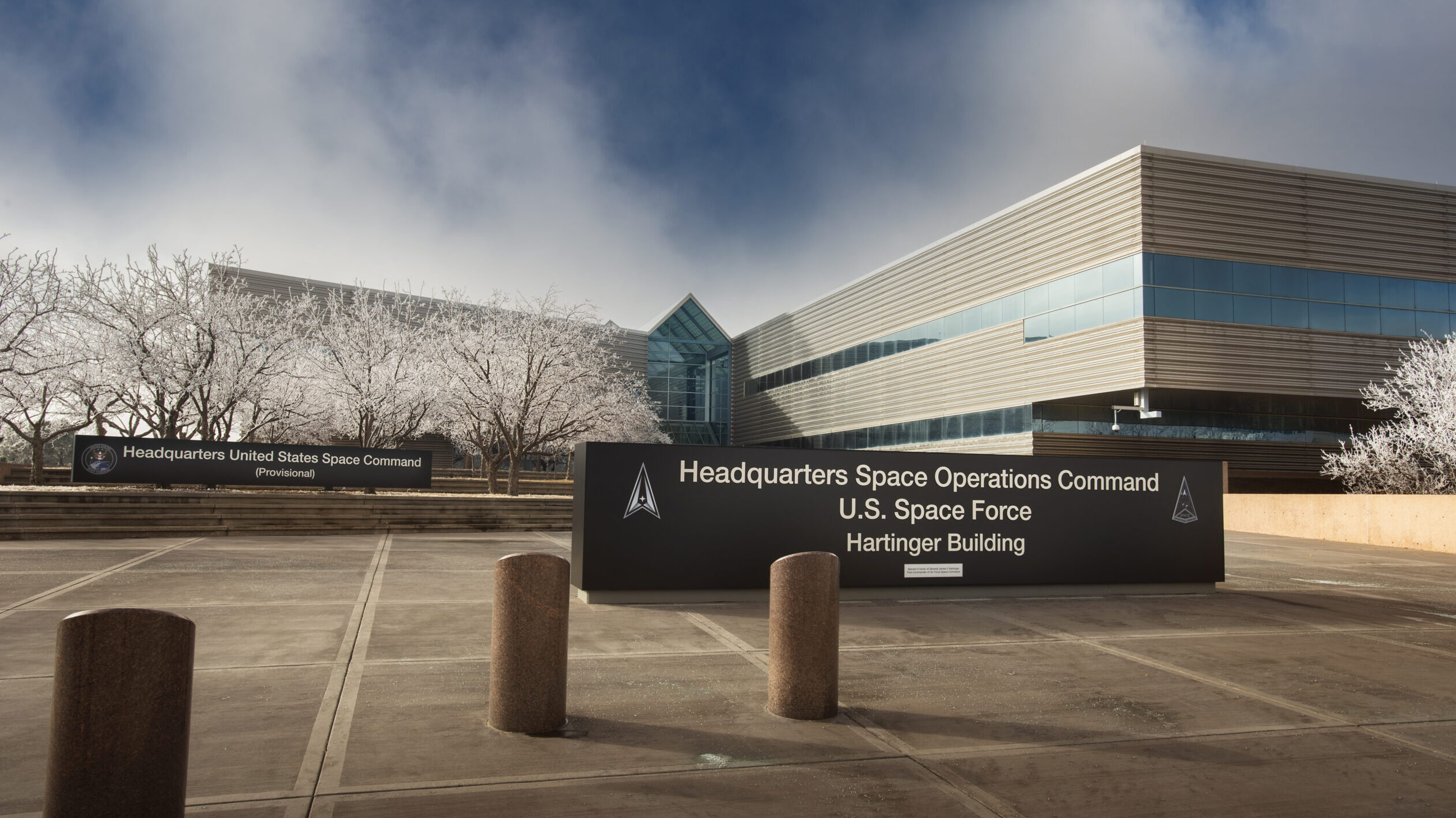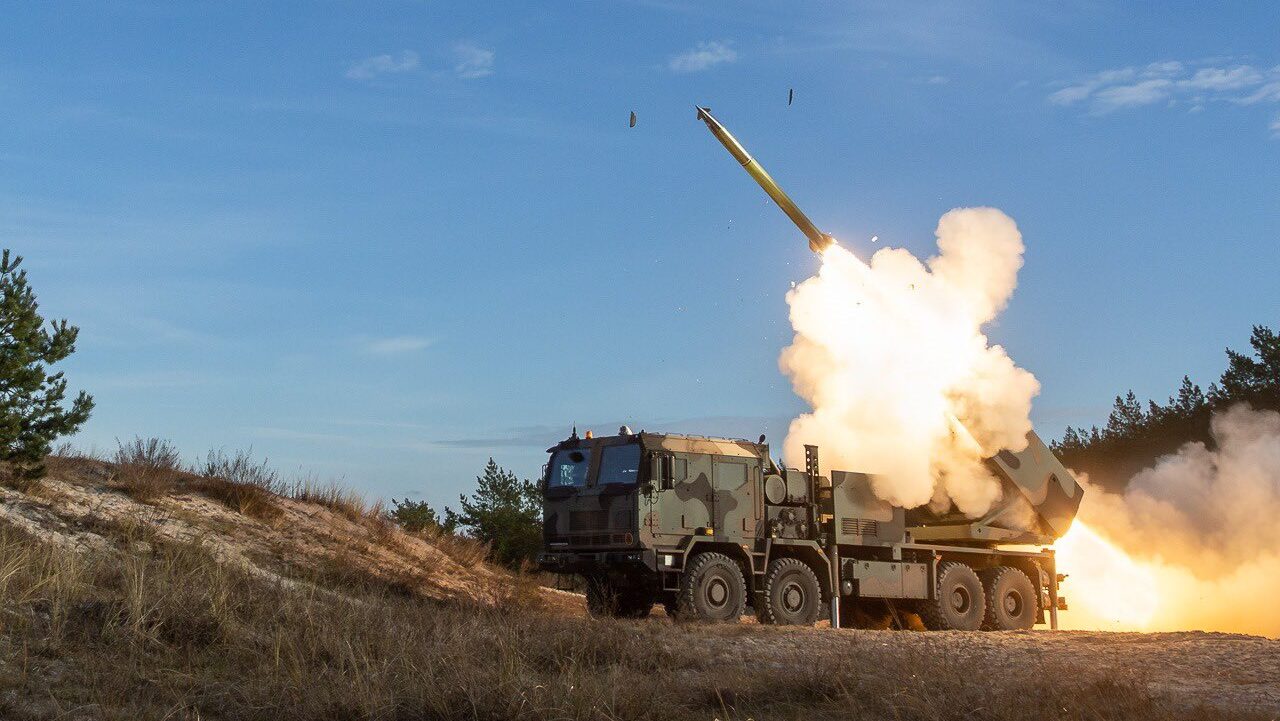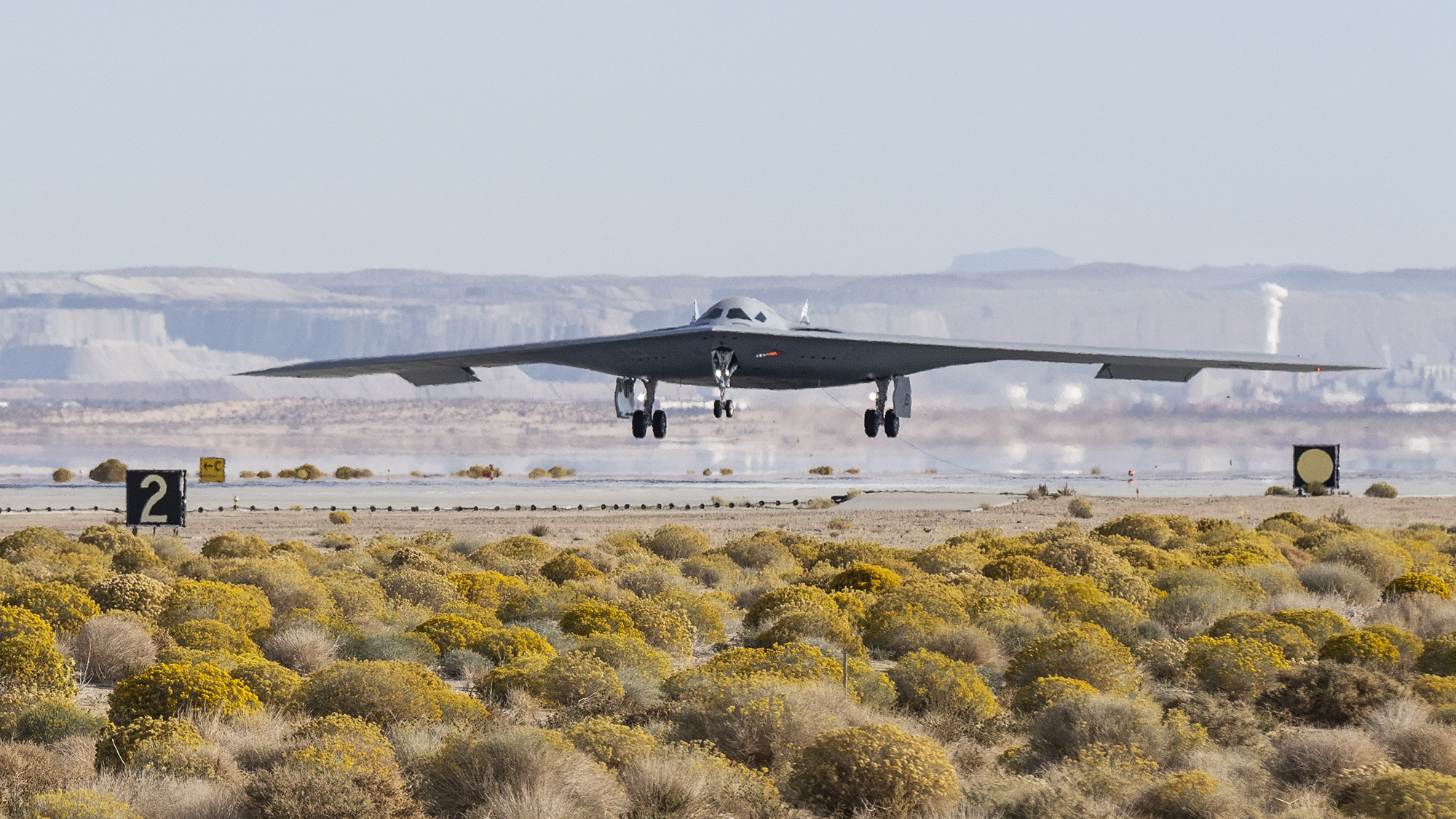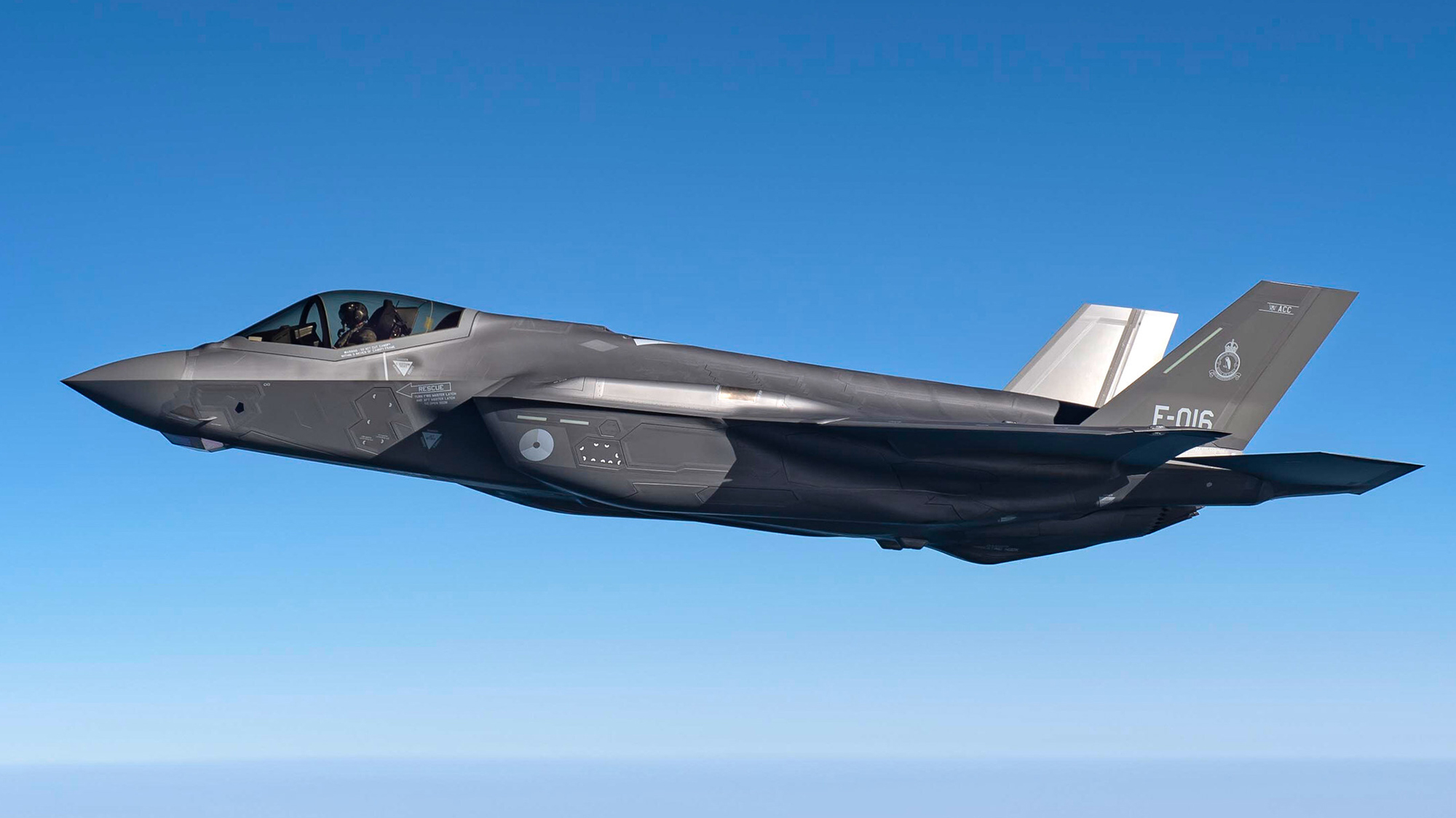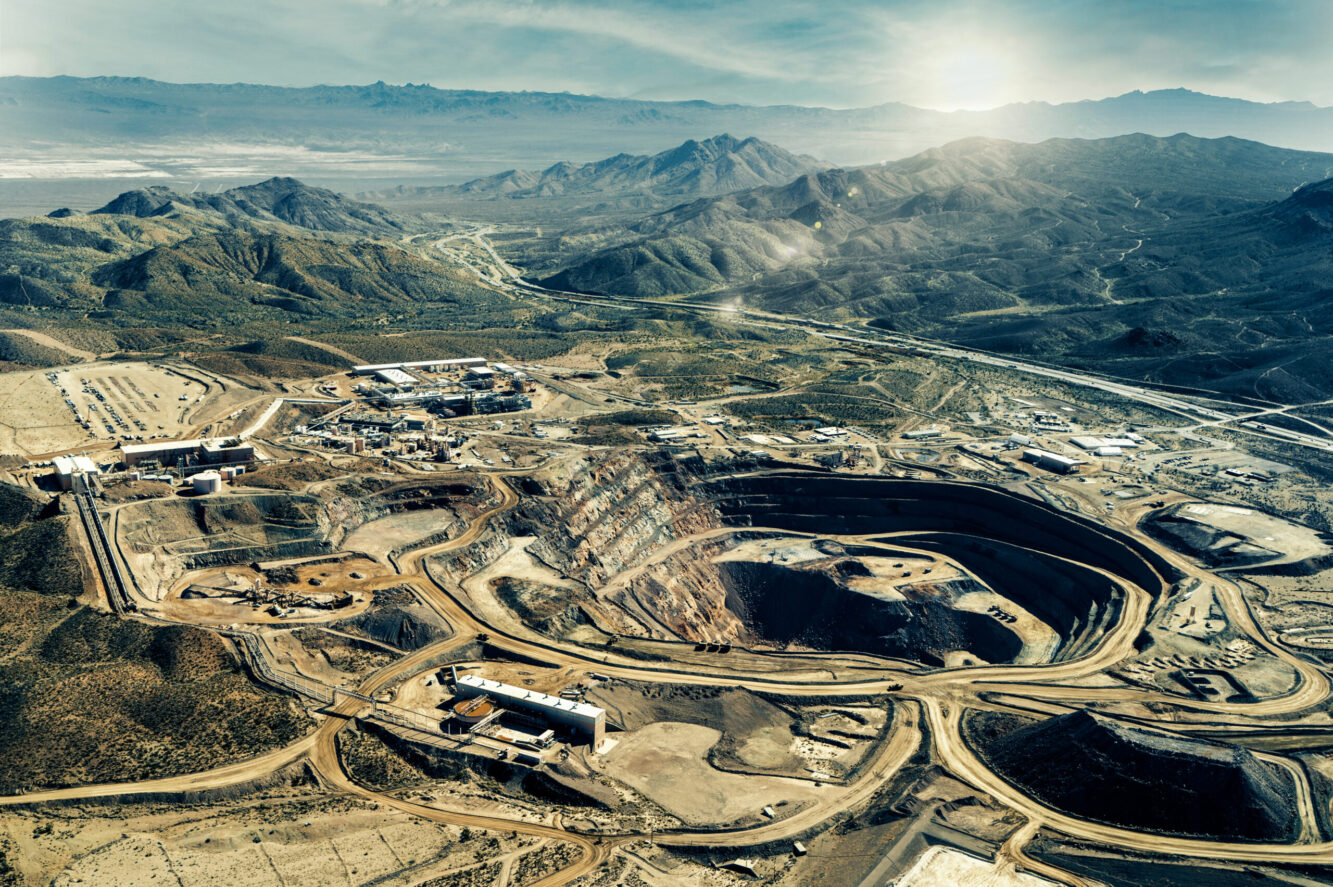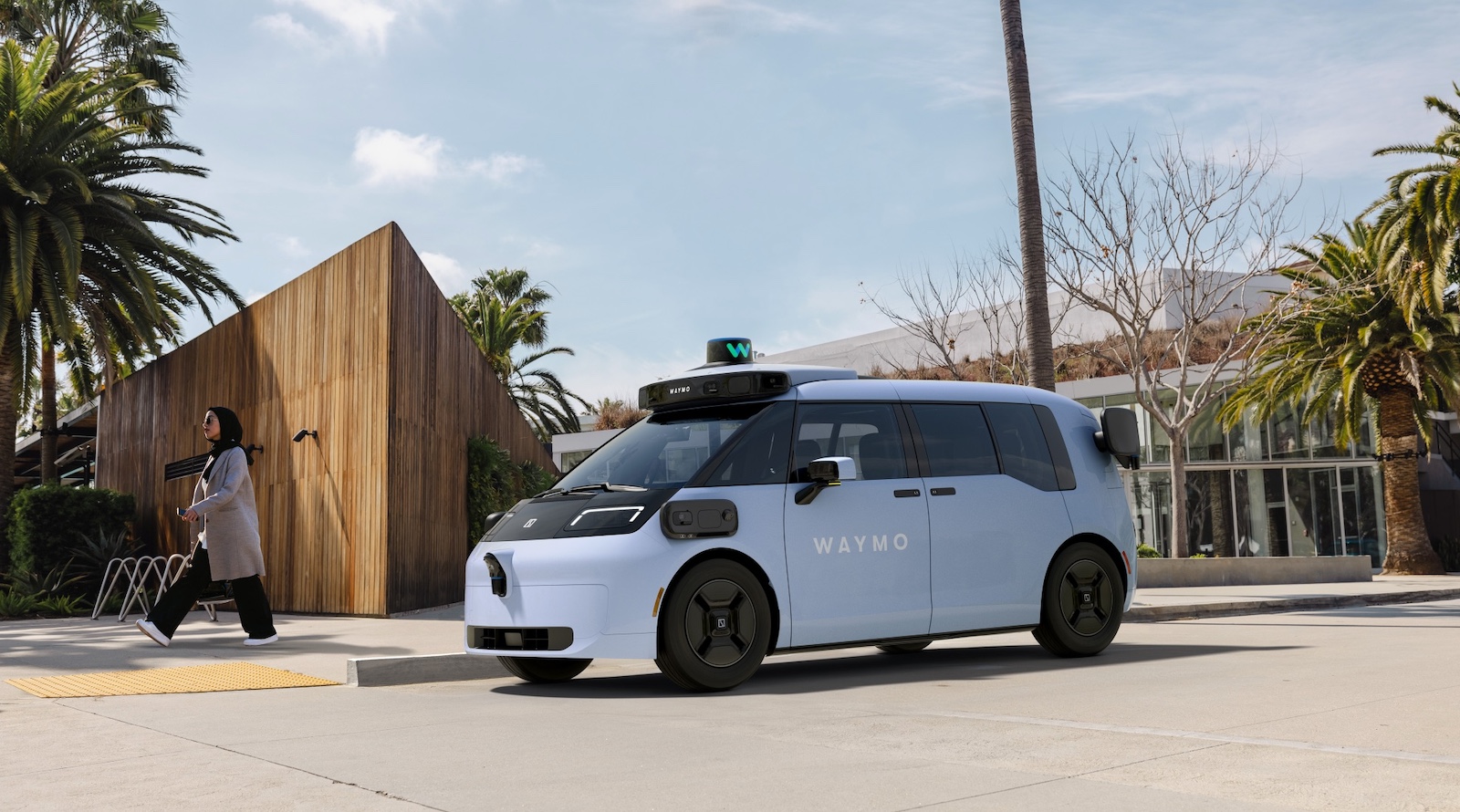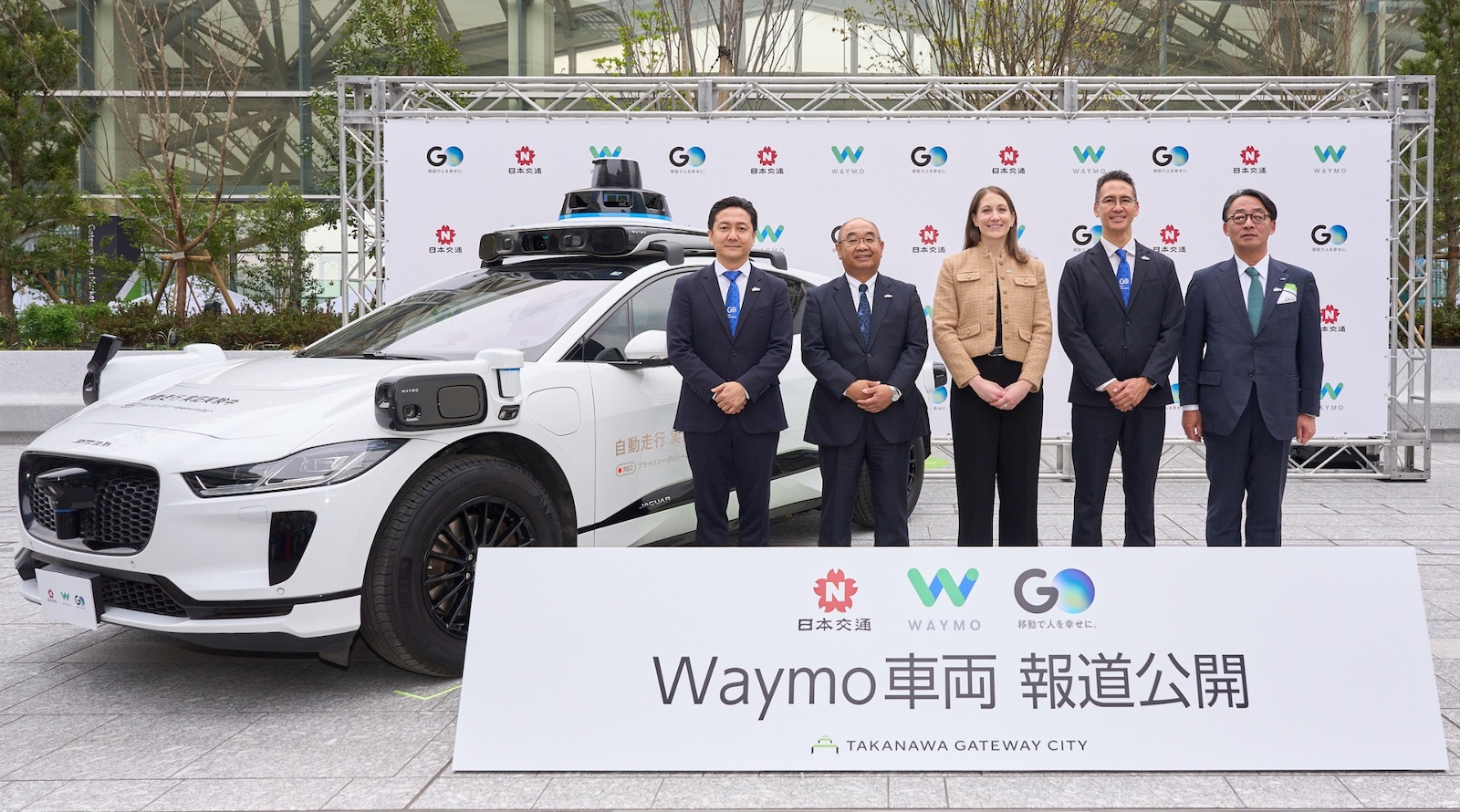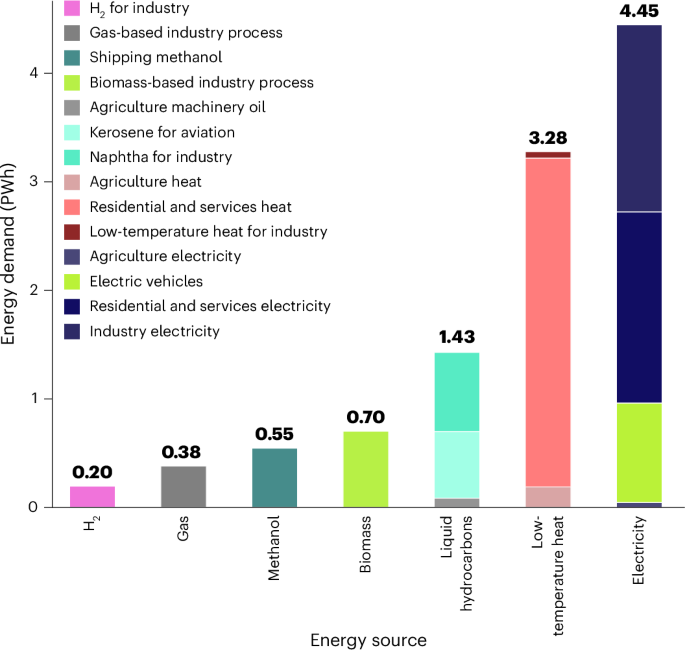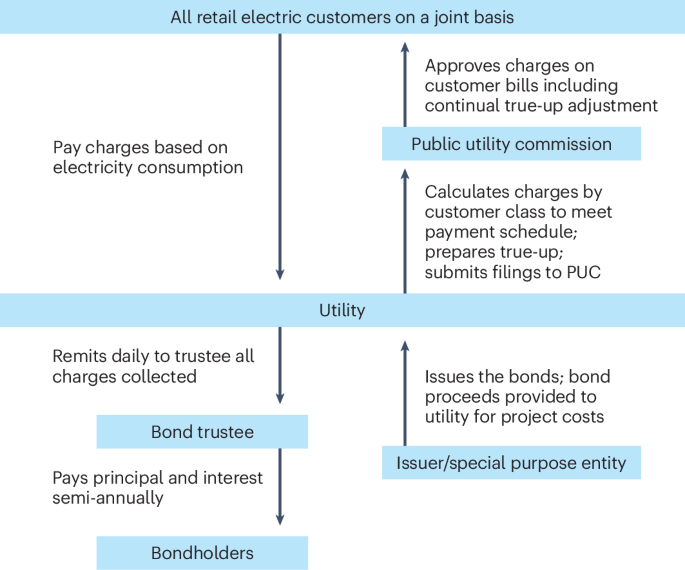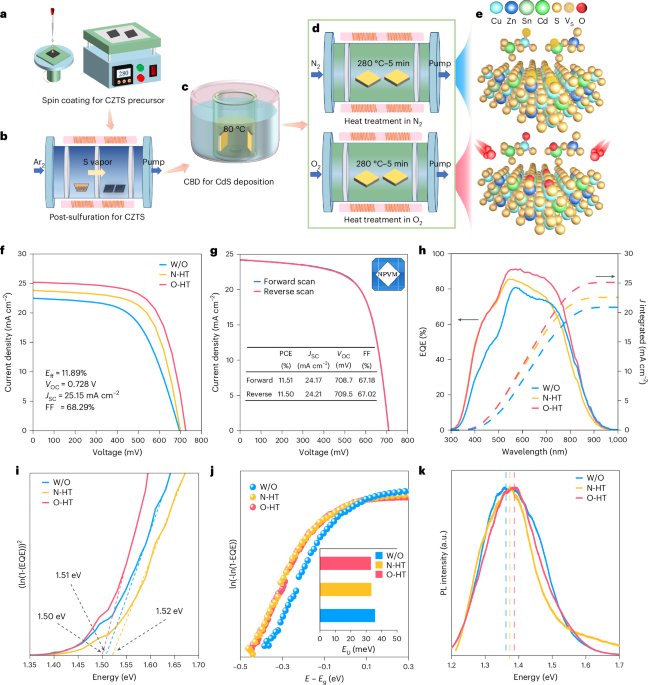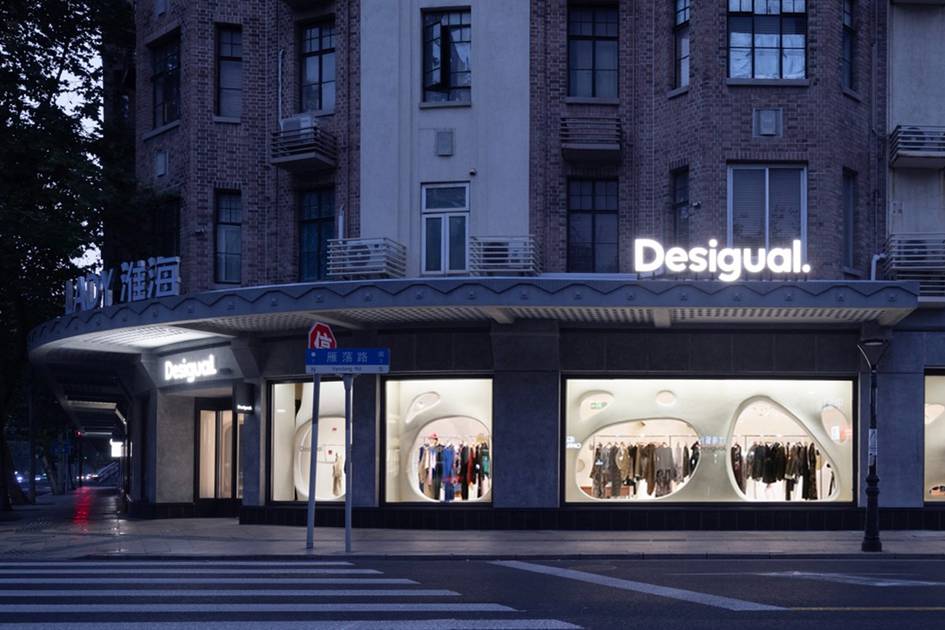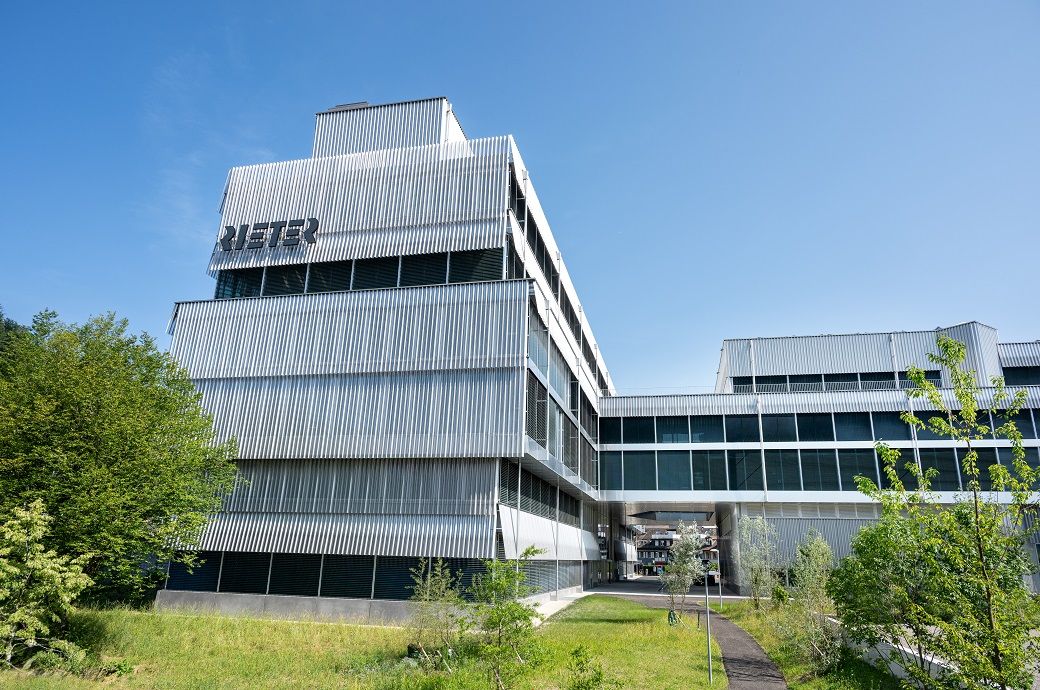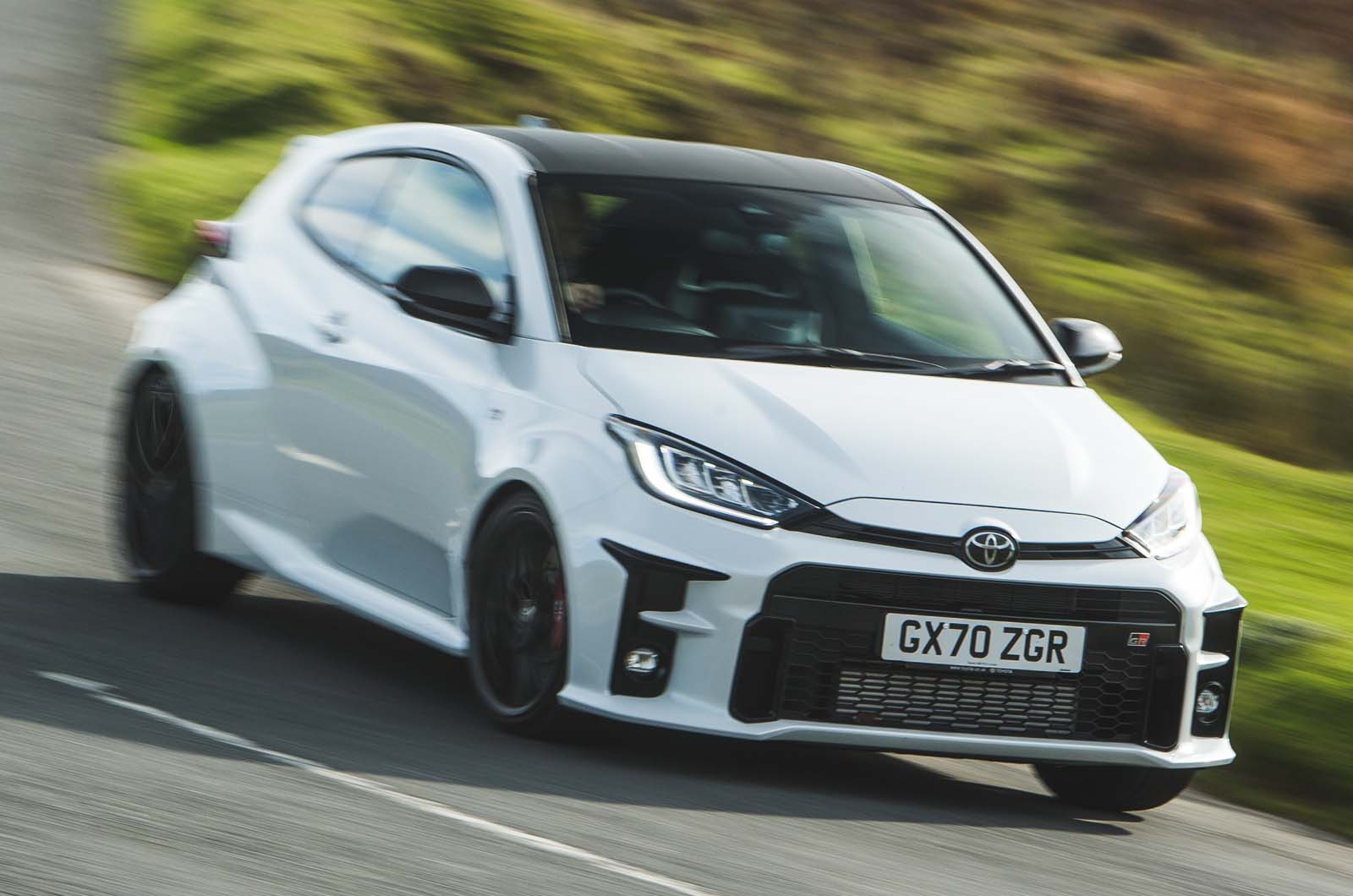Ineos Fusilier range-extender due by 2029 - but uncertainty lingers
Range-extender Fusilier would be banned from 2035, under the current rules Firm delayed electrified 4x4 “because of regulators in the EU and UK”, says boss Ineos Automotive will launch the delayed Fusilier 4x4 “in 2028 or 2029”, confirming its commitment to becoming a multi-model, mass-market car maker. The follow-up to the Grenadier 4x4 was shown in concept form last year and planned to go on sale in 2027 as both a pure-electric car and a range-extender (REx). According to CEO Lynn Calder, the delay “is all driven by [doubts about] powertrain” and “from regulators in key markets, notably in the EU and UK”. Although the Fusilier REx’s engine would act as a generator for the battery, rather than directly driving the wheels, it “would be banned” under upcoming laws outlawing hybrids from 2035. We’re too small to spend huge amounts on product development to then find that we can’t produce it, we can’t sell it, in key markets,” said Calder. When many other car makers are winding back their commitments to phase out combustion engines, “we’re quite small to be taking gambles on things like that”, said Calder, “at a time when consumers don’t know what to buy, aren’t super-clear on what’s being regulated. “In our minds, we know the product line-up we want, but how they’re powered is to come.” “When we get some clarity from governments about what will be allowed to be sold, then we can do what I think automotive manufacturers should do, which is focus on what customers want to buy and then develop and sell that,” continued Calder, noting a disconnect between legislative requirements and how quickly consumers are adopting new tech. Calder was speaking to Autocar at the opening of a biomass energy plant at Ineos’s factory in Hambach, France (formerly Mercedes-Benz’s ‘Smartville’), which will reduce the factory’s CO2 emissions by around 20% – to “beyond net zero” – as well as its heating costs. Heating is around 70% of all energy use at the plant. Production of the Grenadier was suspended for four months late last year after seat supplier Recaro Automotive went into liquidation – having given Ineos only a few weeks’ notice, noted Calder. The German firm has since been rescued by Italian supplier Proma Group and full Grenadier production speed will be achieved again in May. Despite the hiatus, Ineos grew Grenadier sales by 40% last year as it entered its 50th worldwide market. One of them is China, by far the world’s largest. Total capacity at Hambach could be up to 50,000 or so cars per year with all-shift working, but Ineos is currently considered a small-volume manufacturer, which “means we get certain derogations in terms of mandates for emissions reduction over time, which shelters us for the moment,” said Calder. Manufacturers selling fewer than 2500 cars or vans a year are exempted from the UK’s ZEV mandate requirements, but Calder added that “we don’t want to be a small-volume manufacturer. That’s not the ambition and we’re not staying under a limit in order to achieve that. “We will bust the limit of sales the very first second we can. And then we will have to have a different line-up of vehicles – or, frankly, focus on different markets.” Calder said any heavy trade tariffs between the EU and US was a concern for Ineos – given the US is the firm’s biggest market “by a long way” – and since our interview, US president Donald Trump announced a 25% levy on cars and car parts imported into the country. Ineos said it was “outraged” by the development and, in response, Calder demanded “urgent and direct political intervention”. Speaking before the announcement, Calder said: “There is a disparity between automotive imports and exports [American-made cars incur a 10% levy in the EU] and I’m hoping there’s a deal to be done that doesn’t hurt really small brands like us, who are really trying to find our feet and get up and running.” Ineos won’t share production or financial figures for its automotive division, but Calder said: “When I look around at comparable brands - I don’t mean in terms of vehicle types, but in terms of start-ups trying to build a name for themselves – and I look at the financials that come out of those companies, I think we’re doing really well. “One of the things that we’re really good at – and there are lots of things we’re not – is cost control. We run businesses like a very tight ship, and not everybody likes that, and it’s not easy, it’s not fun, but we take care to run a business really well; we don’t throw lots of money at everything. There’s no doubt we’ve got a long way to go.”
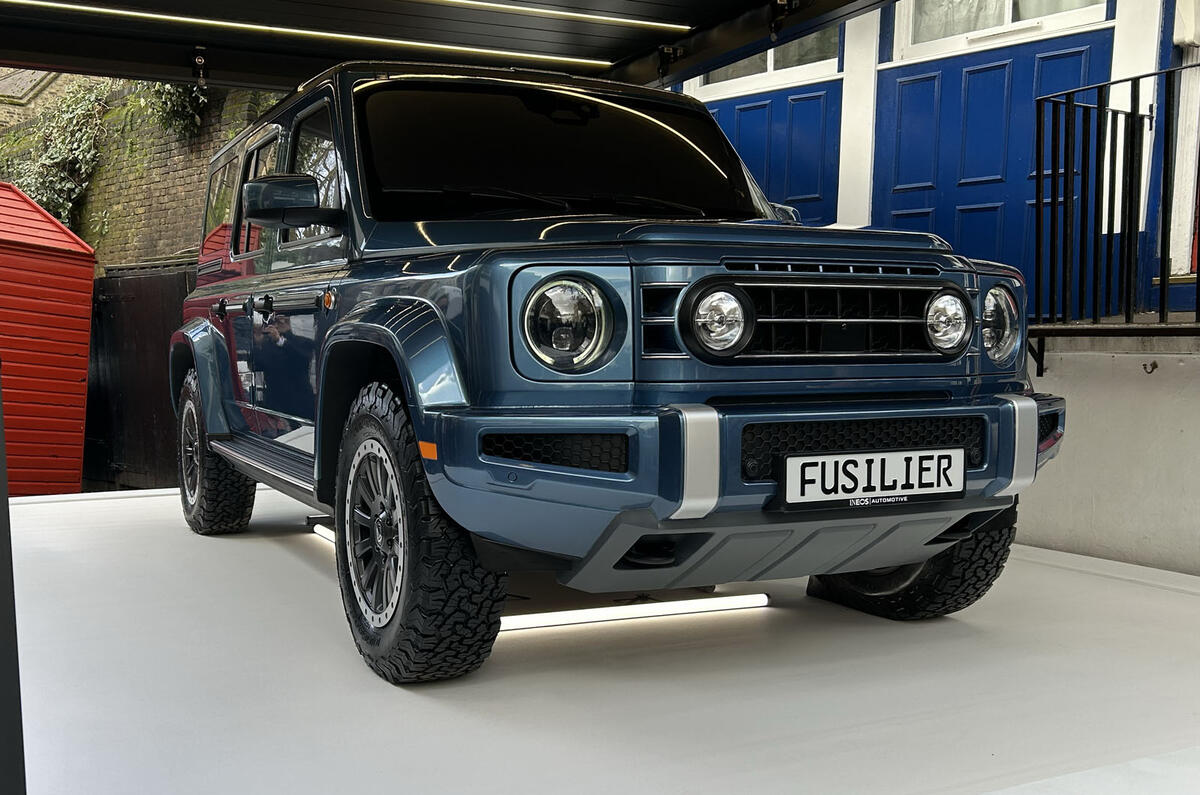

Range-extender Fusilier would be banned from 2035, under the current rulesFirm delayed electrified 4x4 “because of regulators in the EU and UK”, says boss
Ineos Automotive will launch the delayed Fusilier 4x4 “in 2028 or 2029”, confirming its commitment to becoming a multi-model, mass-market car maker.
The follow-up to the Grenadier 4x4 was shown in concept form last year and planned to go on sale in 2027 as both a pure-electric car and a range-extender (REx).
According to CEO Lynn Calder, the delay “is all driven by [doubts about] powertrain” and “from regulators in key markets, notably in the EU and UK”.
Although the Fusilier REx’s engine would act as a generator for the battery, rather than directly driving the wheels, it “would be banned” under upcoming laws outlawing hybrids from 2035.
We’re too small to spend huge amounts on product development to then find that we can’t produce it, we can’t sell it, in key markets,” said Calder.
When many other car makers are winding back their commitments to phase out combustion engines, “we’re quite small to be taking gambles on things like that”, said Calder, “at a time when consumers don’t know what to buy, aren’t super-clear on what’s being regulated.
“In our minds, we know the product line-up we want, but how they’re powered is to come.”
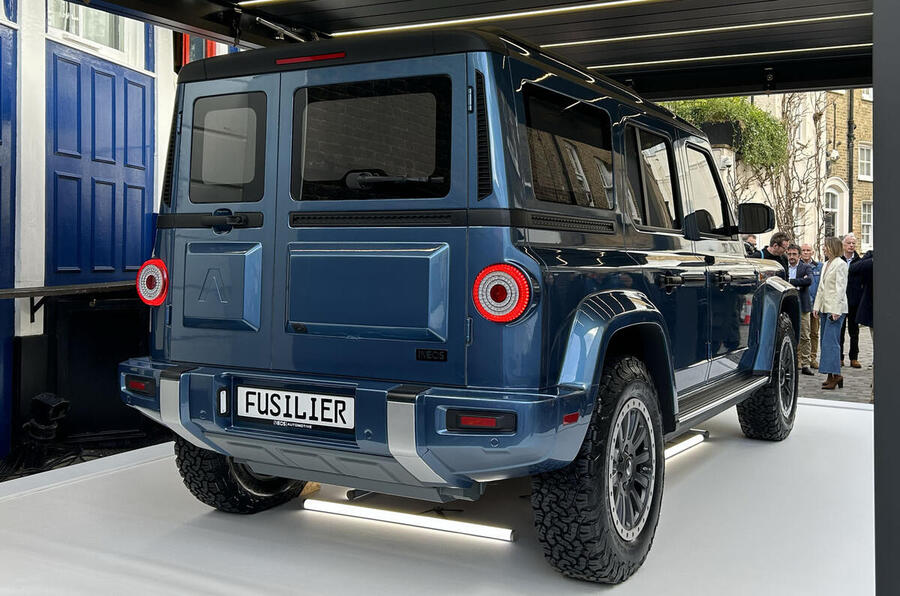
“When we get some clarity from governments about what will be allowed to be sold, then we can do what I think automotive manufacturers should do, which is focus on what customers want to buy and then develop and sell that,” continued Calder, noting a disconnect between legislative requirements and how quickly consumers are adopting new tech.
Calder was speaking to Autocar at the opening of a biomass energy plant at Ineos’s factory in Hambach, France (formerly Mercedes-Benz’s ‘Smartville’), which will reduce the factory’s CO2 emissions by around 20% – to “beyond net zero” – as well as its heating costs. Heating is around 70% of all energy use at the plant.
Production of the Grenadier was suspended for four months late last year after seat supplier Recaro Automotive went into liquidation – having given Ineos only a few weeks’ notice, noted Calder.
The German firm has since been rescued by Italian supplier Proma Group and full Grenadier production speed will be achieved again in May.
Despite the hiatus, Ineos grew Grenadier sales by 40% last year as it entered its 50th worldwide market. One of them is China, by far the world’s largest.
Total capacity at Hambach could be up to 50,000 or so cars per year with all-shift working, but Ineos is currently considered a small-volume manufacturer, which “means we get certain derogations in terms of mandates for emissions reduction over time, which shelters us for the moment,” said Calder.
Manufacturers selling fewer than 2500 cars or vans a year are exempted from the UK’s ZEV mandate requirements, but Calder added that “we don’t want to be a small-volume manufacturer. That’s not the ambition and we’re not staying under a limit in order to achieve that.
“We will bust the limit of sales the very first second we can. And then we will have to have a different line-up of vehicles – or, frankly, focus on different markets.”
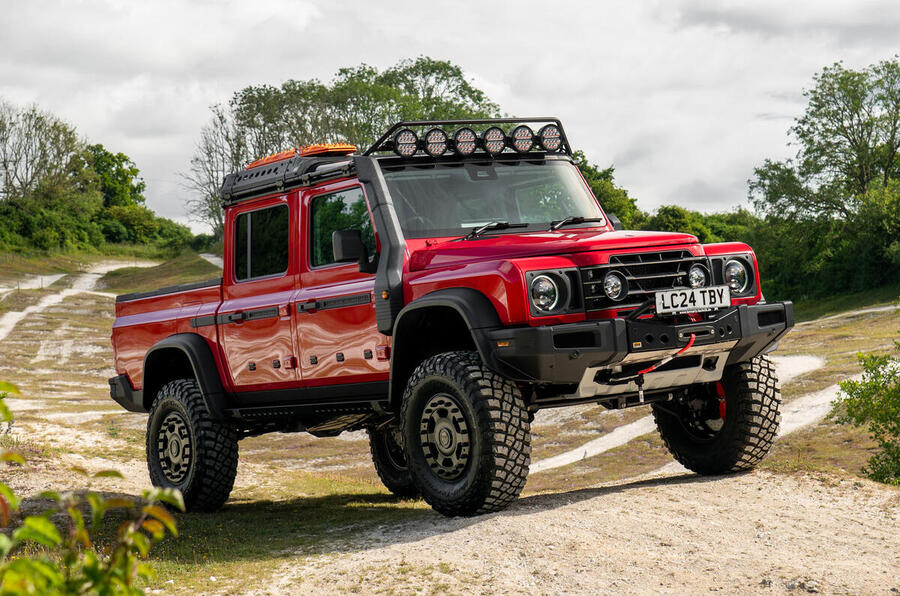
Calder said any heavy trade tariffs between the EU and US was a concern for Ineos – given the US is the firm’s biggest market “by a long way” – and since our interview, US president Donald Trump announced a 25% levy on cars and car parts imported into the country. Ineos said it was “outraged” by the development and, in response, Calder demanded “urgent and direct political intervention”.
Speaking before the announcement, Calder said: “There is a disparity between automotive imports and exports [American-made cars incur a 10% levy in the EU] and I’m hoping there’s a deal to be done that doesn’t hurt really small brands like us, who are really trying to find our feet and get up and running.”
Ineos won’t share production or financial figures for its automotive division, but Calder said: “When I look around at comparable brands - I don’t mean in terms of vehicle types, but in terms of start-ups trying to build a name for themselves – and I look at the financials that come out of those companies, I think we’re doing really well.
“One of the things that we’re really good at – and there are lots of things we’re not – is cost control. We run businesses like a very tight ship, and not everybody likes that, and it’s not easy, it’s not fun, but we take care to run a business really well; we don’t throw lots of money at everything. There’s no doubt we’ve got a long way to go.”












